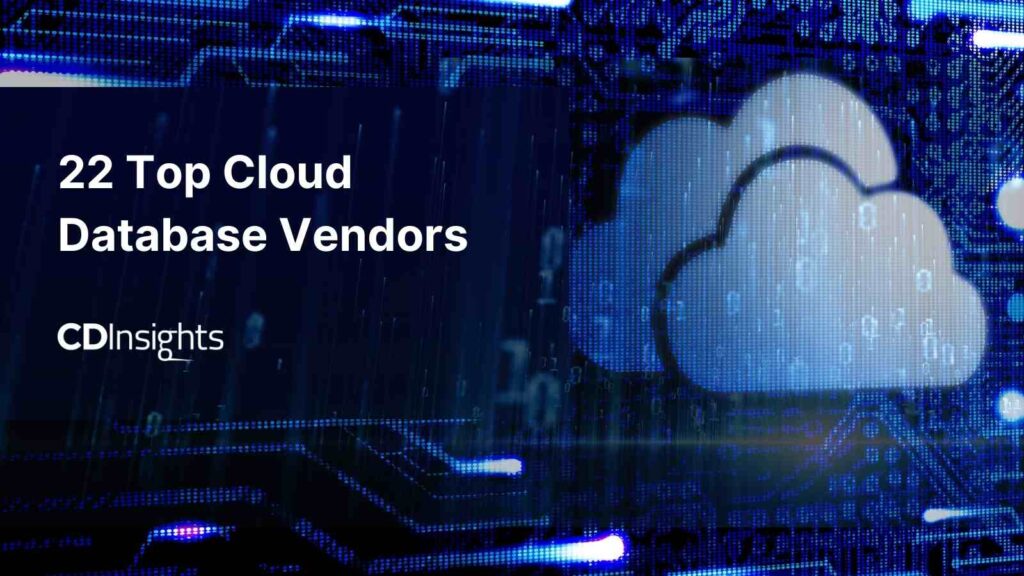Leading Database Providers for Scalable Solutions in 2024
Leading Database Providers for Scalable Solutions in 2024
Blog Article
Secret Attributes to Look for When Selecting a Data Source Supplier
Selecting a data source service provider is a critical decision that can significantly influence your organization's procedures and data management method. Amongst the crucial attributes to think about are scalability alternatives, which make sure that your system can adjust to growing needs.
Scalability Options
When choosing a data source supplier, understanding scalability alternatives is crucial to ensuring that the picked solution can suit future development. Scalability describes the capability of a database system to increase its ability and performance in action to increased need. There are 2 key sorts of scalability: horizontal and upright.
Upright scalability, or "scaling up," entails boosting a single web server's sources, such as CPU, RAM, or storage. This strategy can be straightforward and cost-efficient for smaller applications yet may get to a restriction where further upgrades are also pricey or impractical.
Straight scalability, or "scaling out," involves adding more web servers to disperse the load. This technique enables higher versatility and can fit significant increases in information volume and individual website traffic (database provider). It is especially advantageous for cloud-based data source remedies that can dynamically designate sources based on need

Safety Measures

When assessing security procedures, consider the application of encryption methods (database provider). Data-at-rest and data-in-transit security are necessary to make certain that delicate details continues to be safeguarded, also in the event of a safety violation. In addition, seek service providers that use solid verification systems, such as multi-factor verification (MFA), to further boost access control
Normal security audits and compliance with industry standards, such as GDPR or HIPAA, are indicative of a copyright's dedication to data protection. Additionally, ask about their occurrence action strategy; a robust strategy can reduce the effect of any prospective protection case.
Efficiency Metrics
Evaluating performance metrics is important for organizations to make certain that their chosen database copyright satisfies functional demands. Secret performance metrics consist of response scalability, time, and throughput, which jointly figure out the performance of database operations under varying lots.
Response time is critical, as it mirrors exactly how promptly the database can process inquiries and return outcomes. Organizations needs to seek metrics that show ordinary response times during top and off-peak hours. Throughput, typically gauged in purchases per second (TPS), provides understanding right into the database's capacity to manage high volumes of requests without performance degradation.
Scalability examines the database's capability to grow with the organization's needs. A robust data source provider should show vertical and straight scaling capacities, permitting for smooth adjustments as demands fluctuate. In addition, understanding latency, specifically in distributed systems, can assist organizations examine the responsiveness of the database throughout various geographical places.
Consumer Assistance
Reputable customer support is a keystone of reliable data source administration, offering companies with the aid needed to resolve concerns and maximize efficiency. When choosing a database copyright, reviewing the degree of customer support they provide is vital. A durable support group ought to include numerous networks of interaction, such as phone, e-mail, and live conversation, ensuring that customers can access assistance whenever they need it.
Additionally, receptive assistance groups that are readily available 24/7 significantly boost the reliability of the database solution. Motivate response times and reliable resolution of problems can significantly decrease downtime and boost general productivity. It is likewise beneficial to take into consideration the accessibility of committed support personnel, who can supply tailored help based upon an organization's certain requirements.

Pricing Framework
When taking into consideration a database copyright, the pricing structure is an essential element that can substantially affect a company's budget and general approach. A clear and adaptable rates model is vital for lining up the database costs with company demands - database provider. Organizations must assess whether the rates is based upon consumption, per customer, or a flat rate, as each version can generate various monetary implications in time
It is essential to examine any type of additional expenses related to the company's services, such as learn the facts here now data storage space fees, deal prices, and assistance costs. Some carriers might supply tiered pricing, allowing scalability as the organization expands, while others could impose strict limitations that might become costly as data requirements enhance.
Moreover, companies should consider the lasting worth of the data source solution. While reduced preliminary rates can be appealing, they may not account for future upgrades, upkeep costs, or integration expenses. Performing a thorough cost-benefit evaluation will assist identify one of the Discover More most appropriate pricing structure that balances assistance, scalability, and performance, eventually guaranteeing that the chosen database service provider lines up with the organization's operational and economic goals.
Verdict
In verdict, choosing a database company requires careful factor to consider of numerous critical attributes. Assessing efficiency metrics allows the recognition of efficient databases, and obtainable customer support boosts the overall individual experience.
Picking a data source supplier is a vital decision that can considerably influence your company's information and procedures administration method.When selecting a data source provider, understanding scalability options is critical to guaranteeing that the picked service can suit future growth. When picking a data source supplier, reviewing the level of customer assistance they offer is necessary.When considering a database service provider, the pricing framework is an essential factor that can dramatically influence an organization's budget and overall technique. Carrying out a complete cost-benefit analysis will help determine the most suitable pricing framework that stabilizes support, scalability, and performance, ultimately guaranteeing that the picked database supplier straightens with the company's operational and economic objectives.
Report this page